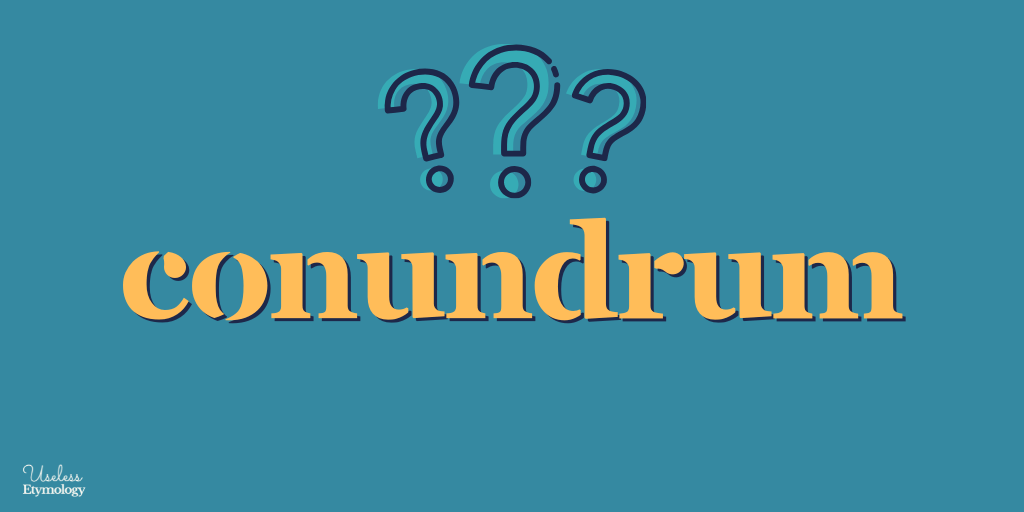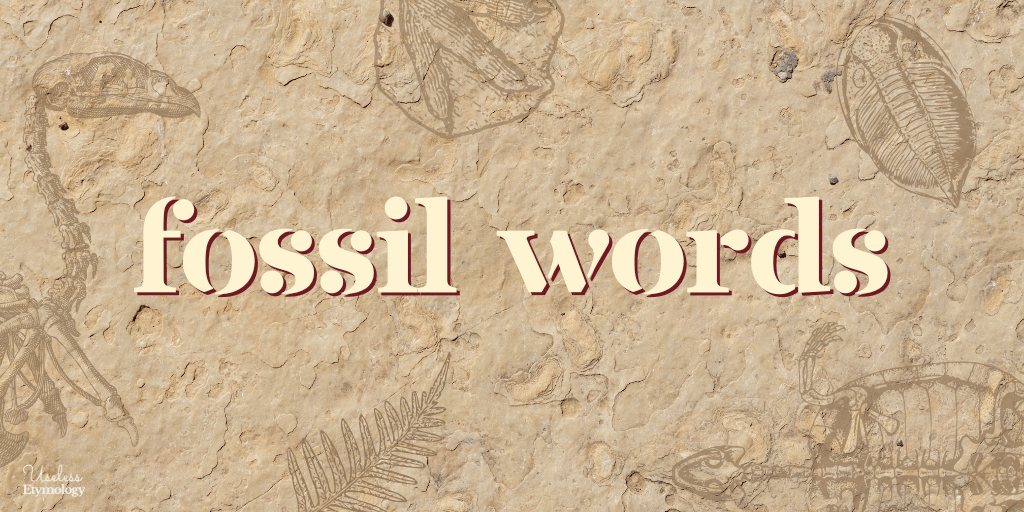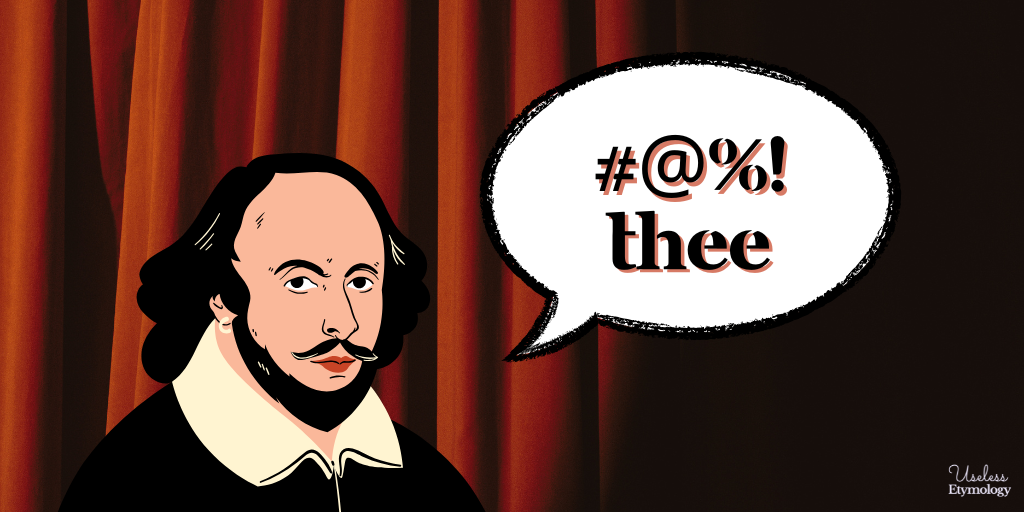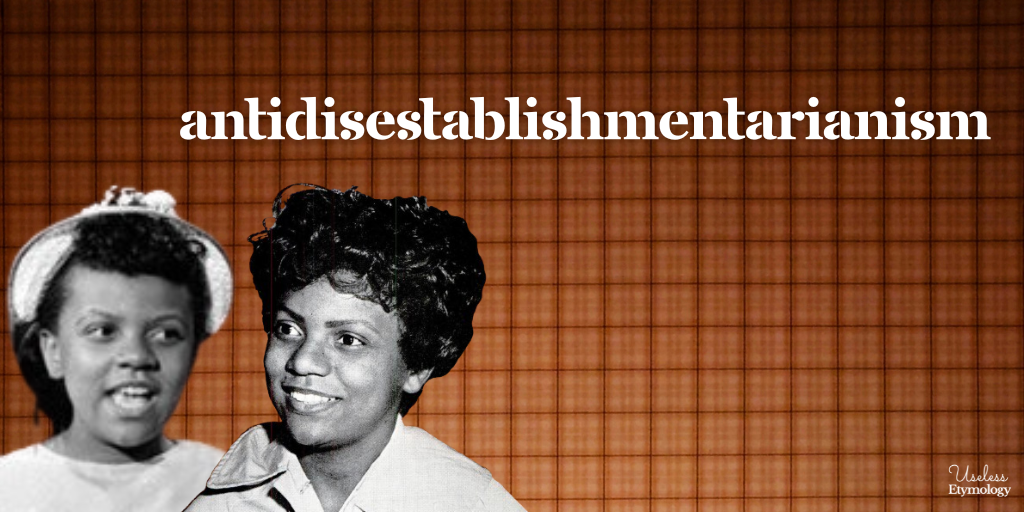The following is a modified excerpt from the book Useless Etymology: Offbeat Word Origins for Curious Minds. The word "conundrum' first appears in English in the late 16th century, supposedly at Oxford University, where it was used as an insult for an overly pedantic or studious person, which suggests it might be mock-Latin, perhaps poking fun… Continue reading Puzzling Out the Etymology of Conundrum
Etymological excavation: What is a fossil word?
The following is an excerpt from the book Useless Etymology: Offbeat Word Origins for Curious Minds. A fossil word is a word that primarily appears in the context of phrases or idioms. It typically comes attached to other words. The phrase survives even when the word itself becomes antiquated and rarely appears on its own.… Continue reading Etymological excavation: What is a fossil word?
Useless Etymology (the Book!) Hits Shelves Oct. 7
I'm delighted to announce the impending arrival of my third etymology book, Useless Etymology: Offbeat Word Origins for Curious Minds, featuring quirky, charming, and humorous word origin stories for lovers of all things lexical. This lovely little blue book, published by Hachette's John Murray Press, will be released in hardcover on Oct. 7 in the… Continue reading Useless Etymology (the Book!) Hits Shelves Oct. 7
The Piebald Etymology of Magpie: A Multicolored Bird of Many Words
The word “piebald” usually describes animals (of a variety of species) whose coats have irregular patches of white and other darker colors and patterns such as black or brindle. We have two interesting things happening here word origin-wise: The “bald” element in this word means “white,” a sense we also see in animal names like… Continue reading The Piebald Etymology of Magpie: A Multicolored Bird of Many Words
Insulting Etymology + Savage Insults from History
The following is excerpted and abbreviated from the book Words from Hell: Unearthing the Darkest Secrets of English Etymology. English is a great language for verbal evisceration, a practice predicated upon a long history of creativity in this arena. Poetry, theater, novels, and, of course, politics have made rich, recurring and visionary use of put-downs,… Continue reading Insulting Etymology + Savage Insults from History
The Shocking Origin of the Word “Electric”
The word “electric” zapped its way into English in the 1600s from the Modern Latin electricus, meaning “resembling amber” (Greek ēlektron, “amber”). But what does electricity—and what do electrons, for that matter—have to do with fossilized tree resin? This word came to life thanks to early research into magnetism, as well as the exchange of… Continue reading The Shocking Origin of the Word “Electric”
The Tragic Etymology of “Nostalgia”
The word "nostalgia" first described homesickness and likely PTSD symptoms experienced by Swiss soldiers and mercenaries who fought abroad in the 1700s. Nostalgia has a surprisingly tragic origin. In 1688, Swiss medical student Johannes Hofer wrote a dissertation about a condition that was common to Swiss soldiers and mercenaries who were fighting in other parts… Continue reading The Tragic Etymology of “Nostalgia”
The Etymology of “Dude”
This word first described men—especially Northeasterners—with a penchant for fashion, worldliness, and foreign fare. It also boasts a curious connection to "macaronic language." Hey dude! Ever wonder about the origin of the word “dude”? This word is first recorded in the late 1800s as a word for a man who is foppish and fastidious, meaning… Continue reading The Etymology of “Dude”
How 12-year-old Gloria Lockerman taught us the word “disestablishmentarianism”
A 12-year-old girl named Gloria Lockerman is the reason you learned the word "antidisestablishmentarianism" when you were a kid. Remember how you and your friends would toss it around, touting it as one of the longest words—if not the longest—in the English language? There are of course many longer words, many of them scientific or… Continue reading How 12-year-old Gloria Lockerman taught us the word “disestablishmentarianism”









